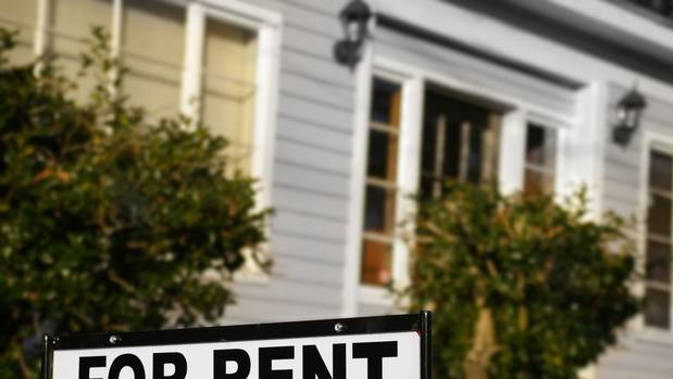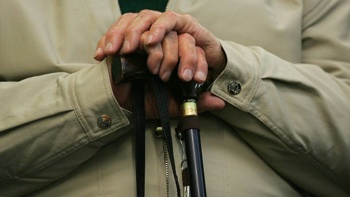
The areas that have experienced the biggest rent hikes, causing some New Zealanders to struggle to make ends meet, have been revealed.
A new interactive created by the Herald Insights team shows how the average weekly rent for new rentals has changed over the past decade, by suburb.
The data, collected from bonds lodged with the Tenancy Tribunal, revealed the average weekly rent nationally for new rentals climbed by 3.6 per cent from $385 in the fourth quarter of 2016 to $399 at the end of last year.
This compared to a hike of 23.5 per cent over five years to the end of 2017, and 41.5 per cent over 10 years.
The district with the biggest hike in the year to the end of the 2017 fourth quarter was the South Island tourist spot of Kaikoura, where the average weekly rent for new rentals went up 44.3 per cent from $230 to $332. The figure was based on just 21 bonds lodged in the fourth quarter of 2017.
Kaikoura Realty director Joe van Rooyen said the rise was driven by an influx of workers for the rebuild after the 2016 earthquake.
The district with the biggest drop was Waitaki in the South Island, where the average weekly rent for new rentals went from $275 to $248 - a 9.9 per cent decrease, based on 100 new bonds.
When it came to suburbs, weekly prices for new rentals in Auckland's waterfront Kohimarama East faced the biggest hike nationwide - by 40 per cent from an average of $608 to $854. This was based on just 26 new bonds.
It was followed by north Auckland's Cape Rodney and Cooks Gardens in Whanganui.
Christchurch's Opawa was the suburb with the biggest drop in the country - by 48 per cent from an average of $401 to $209, based on 43 new bonds.
As for the major cities, the Auckland region increased by 3.3 per cent (from an average of $491 to $508 per week) between the fourth quarters of 2016 and 2017.
Whangarei was up by 8.4 per cent (from an average of $331 to $358 per week), while the Wellington region increased 6.5 per cent (from an average of $383 to $408 per week).
Hamilton, Rotorua and Tauranga also saw average weekly rents for new rentals go up by 4 per cent ($342 to $356), 7.1 per cent ($300 to $321) and 5.4 per cent ($414 to $436) respectively.
Rising rents sending Aucklanders into the regions, had contributed to hikes in areas including Rotorua, Tauranga, Hamilton and Northland, according to experts.
In contrast, the data revealed rents for new rentals in Christchurch fell by 4.3 per cent (from an average of $355 to $340 per week) over the same period.
Dunedin experienced a 5 per cent rise (from an average of $336 to $353 per week).
Executive officer of the New Zealand Property Investors' Federation Andrew King said
the data for small areas, like individual suburbs, could be affected by a number of variables.
"It could be that a whole heap of apartments could have come on the market in the last three months of [2016] and then a whole heap of five-bedroom mansions could have come up in [2017]. Because the data is so small those changes make a big, big difference," he said.
King said when rents became too expensive in one area people looked for solutions including moving suburbs or cities, living with their parents or getting extra flatmates, which then dampened demand and rental prices in that locale.
But in general, rents were rising across the country for reasons including the costs associated with providing rental properties, such as insurance, had gone up, he said.
"That's causing a lot of people to not be able to provide rental property any more. So we are seeing a bit of a reduction in supply, at the same time with our high immigration numbers we are seeing quite an increase in demand for rental properties."
In Auckland, the central district and the North Shore saw increases in 2017, while rents in Waitakere slowed compared to 2016, he said.
"In most cities around the world people tend to want to be towards the middle of the city [because] the action is going on in the middle of the city. So those areas and the areas near to them are the ones that tend to be quite popular," King said.
The cost of rent was a main driver for many people seeking help from Auckland Action Against Poverty (AAAP), advocacy co-ordinator Alastair Russell said.
A staggering 8000 Aucklanders sought help with issues including rent arrears, accessing emergency accommodation and food from AAAP in 2017.
That was up from 5000 people the year before, but the organisation offered its services in more places in 2017 meaning more people could access them.
"People are forced to make really brutal decisions. They know that the rent has to be paid or they are homeless, they know that the power needs to be paid or the power gets cut off, so other essentials like food get trimmed to the bare minimum. And sometimes, there just ain't no money for it at all."
Russell feared poverty would get worse until a raft of measures including rent controls and liveable wages were put in place.
CoreLogic NZ's head of research Nick Goodall said rents were likely to continue increasing in areas such as Auckland and Wellington where factors including strong migration, a strong economy and people struggling to buy first homes meant the demand for rentals outstripped supply.
When it came to Wellington, head of Trade Me Property Nigel Jeffries said university students had played a key part in rising rents in recent years.
"As a proportion of the population in central Wellington, students are higher than what they would be in Auckland and the housing stock hasn't kept pace with the demand."
For Christchurch, Jeffries said rents spiked in the city after the 2010 and 2011 earthquakes, when an influx of workers arrived for the rebuild to a lack of properties due to damage.
"Now the houses have been fixed and the workers have left to a large extent, that's [increased] the supply to the extent that rents have dropped."
Jeffries said rents had begun stabilising in Christchurch, and he expected prices to increase by close to 2 per cent over the next year.
And that would be the case for most major cities across the country where Jeffries predicted rents would rise by between 2 and 4 per cent over the next 12 months.
Take your Radio, Podcasts and Music with you









